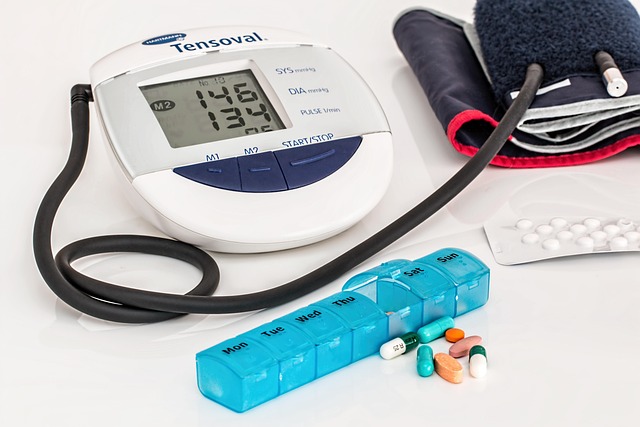Medications That Can Affect Kidney Health: Signs, Risks, and Key Information
Medications play a vital role in managing chronic conditions and enhancing quality of life. However, some drugs can place significant strain on the kidneys, potentially causing long-term damage. This condition, known as drug-induced kidney injury (DIKI), may develop gradually or suddenly, depending on the medication type and dosage. Being aware of which medications carry risks and recognizing early symptoms of kidney dysfunction are essential steps to protect kidney health over time.

Many people rely on medications to manage chronic conditions, relieve pain, or treat infections. While these drugs provide essential benefits, some can negatively impact kidney function over time. The kidneys filter approximately 200 quarts of blood daily, removing toxins and excess fluids. When medications interfere with this process, the consequences can range from mild dysfunction to severe kidney damage. Awareness of these risks empowers individuals to make informed decisions about their healthcare and engage in proactive monitoring.
Medications That May Harm the Kidneys
Several categories of medications are known to pose risks to kidney health. Nonsteroidal anti-inflammatory drugs (NSAIDs) such as ibuprofen and naproxen are among the most commonly used over-the-counter pain relievers. While effective for short-term use, prolonged or high-dose consumption can reduce blood flow to the kidneys, potentially causing acute kidney injury or chronic kidney disease.
Antibiotics, particularly aminoglycosides and certain cephalosporins, can be nephrotoxic when used at high doses or for extended periods. These medications are often necessary for treating serious infections, but healthcare providers typically monitor kidney function during treatment. Proton pump inhibitors (PPIs), widely prescribed for acid reflux and ulcers, have been associated with increased risk of chronic kidney disease and acute interstitial nephritis when used long-term.
Other medications that may affect kidney health include certain blood pressure drugs like ACE inhibitors and diuretics, which can cause complications in individuals with existing kidney impairment. Contrast dyes used in imaging procedures, lithium for bipolar disorder, and some chemotherapy agents also carry nephrotoxic potential. Understanding these risks allows patients and providers to weigh benefits against potential harm.
Recognizing the Symptoms of Kidney Damage
Early detection of kidney damage is crucial for preventing irreversible harm. Unfortunately, kidney disease often progresses silently in its initial stages, making awareness of subtle symptoms essential. Changes in urination patterns are among the earliest indicators. This may include increased frequency, especially at night, decreased urine output, or noticeable changes in urine color such as dark, foamy, or bloody appearance.
Swelling, medically known as edema, commonly occurs in the legs, ankles, feet, or face when kidneys cannot properly eliminate excess fluid. Persistent fatigue and weakness may develop as waste products accumulate in the bloodstream. Some individuals experience nausea, loss of appetite, or a metallic taste in the mouth. More advanced symptoms include confusion, muscle cramps, shortness of breath, and persistent itching.
High blood pressure that becomes difficult to control can signal kidney dysfunction, as the kidneys play a key role in blood pressure regulation. Anyone experiencing these symptoms, particularly while taking medications known to affect kidney function, should consult a healthcare provider promptly for evaluation through blood tests and urinalysis.
Risk Factors and Prevention Strategies
Certain factors increase vulnerability to medication-induced kidney damage. Age is a significant consideration, as kidney function naturally declines after age 40. Older adults metabolize medications differently and may be more susceptible to nephrotoxic effects. Pre-existing kidney disease, diabetes, and hypertension substantially elevate risk, as these conditions already compromise kidney function.
Dehydration amplifies the harmful effects of many medications on the kidneys. Adequate hydration helps dilute potentially toxic substances and maintains proper blood flow to the kidneys. Taking multiple medications simultaneously, known as polypharmacy, increases the likelihood of drug interactions that may harm kidney function. Genetic factors and certain autoimmune conditions also contribute to individual susceptibility.
Prevention strategies focus on minimizing unnecessary medication use and optimizing hydration. Using the lowest effective dose for the shortest duration appropriate reduces exposure to potentially harmful substances. Avoiding NSAIDs when alternative pain management options exist provides significant protection. Individuals with existing risk factors should discuss kidney-safe alternatives with their healthcare providers before starting new medications.
Monitoring and Support for Kidney Health
Regular monitoring is essential for individuals taking medications with nephrotoxic potential. Healthcare providers typically order blood tests to measure creatinine and blood urea nitrogen (BUN) levels, which indicate how well the kidneys are filtering waste. The estimated glomerular filtration rate (eGFR) provides a comprehensive assessment of kidney function. Urinalysis can detect protein or blood in urine, early markers of kidney damage.
The frequency of monitoring depends on individual risk factors and the specific medications being used. Those with pre-existing kidney disease or taking high-risk medications may require testing every few months, while others might need annual checks. Maintaining a medication list and sharing it with all healthcare providers ensures coordinated care and prevents potentially harmful drug combinations.
Lifestyle modifications support kidney health alongside medical monitoring. A balanced diet low in sodium and processed foods reduces kidney workload. Limiting alcohol consumption and avoiding tobacco products protects kidney function. Regular physical activity helps control blood pressure and blood sugar, both critical for kidney health. Staying well-hydrated, unless otherwise directed by a healthcare provider, supports optimal kidney function.
Medication Management and Alternatives
Effective medication management involves ongoing communication between patients and healthcare providers. When medications known to affect kidney function are necessary, providers may adjust dosages based on kidney function tests or recommend periodic drug holidays to allow recovery. Some medications require dose modifications in individuals with reduced kidney function to prevent accumulation of toxic levels.
Exploring alternatives to nephrotoxic medications can provide therapeutic benefits while protecting kidney health. For pain management, acetaminophen generally poses less risk to the kidneys than NSAIDs, though it requires careful dosing to avoid liver damage. Physical therapy, acupuncture, and other non-pharmacological approaches may reduce reliance on pain medications. For acid reflux, lifestyle modifications and H2 blockers may serve as alternatives to long-term PPI use.
When antibiotics are necessary, selecting agents with lower nephrotoxic potential and ensuring proper hydration can minimize risk. Healthcare providers may choose alternative imaging techniques that avoid contrast dyes for patients with compromised kidney function. Regular medication reviews help identify opportunities to discontinue unnecessary drugs or substitute safer alternatives. Patient education about proper medication use, including timing and dosing, enhances safety and effectiveness.
Protecting Your Kidneys While Managing Health Conditions
Balancing the need for medications with kidney protection requires a collaborative approach between patients and healthcare teams. Open communication about concerns, symptoms, and medication side effects enables timely interventions. Individuals should never discontinue prescribed medications without consulting their healthcare provider, as abrupt cessation can cause serious complications for the underlying condition.
Maintaining awareness of which medications pose risks empowers informed decision-making. Reading medication labels, understanding potential side effects, and asking questions about kidney safety demonstrates active participation in healthcare. For those with multiple chronic conditions requiring various medications, working with a clinical pharmacist can optimize medication regimens while minimizing kidney risks.
The kidneys’ remarkable filtering capacity deserves protection through thoughtful medication use and proactive monitoring. By recognizing potentially harmful medications, identifying early warning signs, understanding personal risk factors, and engaging in regular health monitoring, individuals can maintain kidney function while effectively managing their health conditions. This balanced approach supports both immediate therapeutic needs and long-term kidney health.
This article is for informational purposes only and should not be considered medical advice. Please consult a qualified healthcare professional for personalized guidance and treatment.




